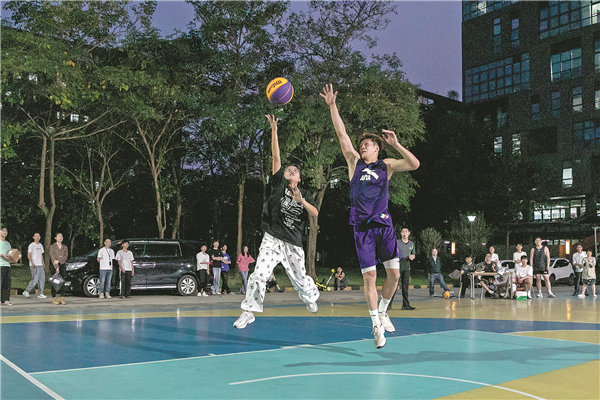Scientist with a winning formula


Over the past 18 years, it has evolved into a flagship institution among China's new research entities. SIAT has successfully incubated nearly 2,000 enterprises and has attracted over 150 national-level talents and more than 800 overseas returned talents. Furthermore, 77 individuals from SIAT are named in the world's top 2 percent of the most cited scientists by Stanford University.
Fan says that establishing a remarkable university is his "final destination".
"There is no other pursuit in my life," he says. "We aim to leverage the research institution SIAT to establish a first-class university."
The SIAT currently boasts three national key laboratories specializing in medical imaging science and technology systems, quantitative synthetic biology and integrated circuit materials, as well as four national-level innovation centers focusing on high-performance medical devices and intelligent engineering biology, among other frontier areas.
These platforms will be valuable resources for SUAT, according to Fan.
Freshmen at SUAT will rotate through different laboratories to explore diverse fields and choose their desired majors. Starting in their second year, they will commit to a specific major and participate in weekly lab research. Over four years, they will spend at least 20 percent of their time in the lab.
"Think about a young student starting in a top national lab from their first year of university. Being in that research-rich environment will definitely make them stand out," says Fan.
Opportunities for freshmen to engage in research are rare in traditional Chinese universities. This is what Fan emphasizes as the need for innovation in running a university.
Another innovative move at SUAT will be the absence of typical science and engineering schools. Instead, all schools will emphasize interdisciplinary studies.
For instance, the School of Life and Health at SUAT will establish four departments dedicated to biology, neurobiology, intelligent cross-science, and mental and public health, with a primary focus on nurturing talents in brain science-related fields. Students will be required to take courses spanning various disciplines such as mathematics, physics, chemistry, biology and engineering, among others — an approach seldom found at traditional universities, Fan explains.
The other six inaugural schools are the School of Synthetic Biology, the School of Computer Science and Control Engineering, the School of Biomedical Engineering, the School of Materials Science and Energy Engineering, the School of Pharmacy and the School of Computing and Microelectronics.
Notably, these schools will all boast international faculty. For example, Pan Yi, an academician of the American Institute for Medical and Biological Engineering who previously taught at Georgia State University in the United States, is scheduled to be the dean of the School of Computer Science and Control Engineering. Wang Yutian, an academician with the Academy of Science of the Royal Society of Canada in Ottawa, will lead the School of Life and Health. Chen Youhai, also an academician of AIMBE and who once taught at the University of Pennsylvania, will serve as the dean of the School of Pharmacy.
"We aim to pioneer a new path in interdisciplinary fields and nurture a large number of versatile talents who are urgently needed by the nation," says Fan.
Noticing the growing preference among Chinese youth for stable government positions and the high regard for official roles, Fan expresses his ambitious vision.
"We want to foster individuals with a strong sense of citizenship, capable of changing the world through science and technology."




































